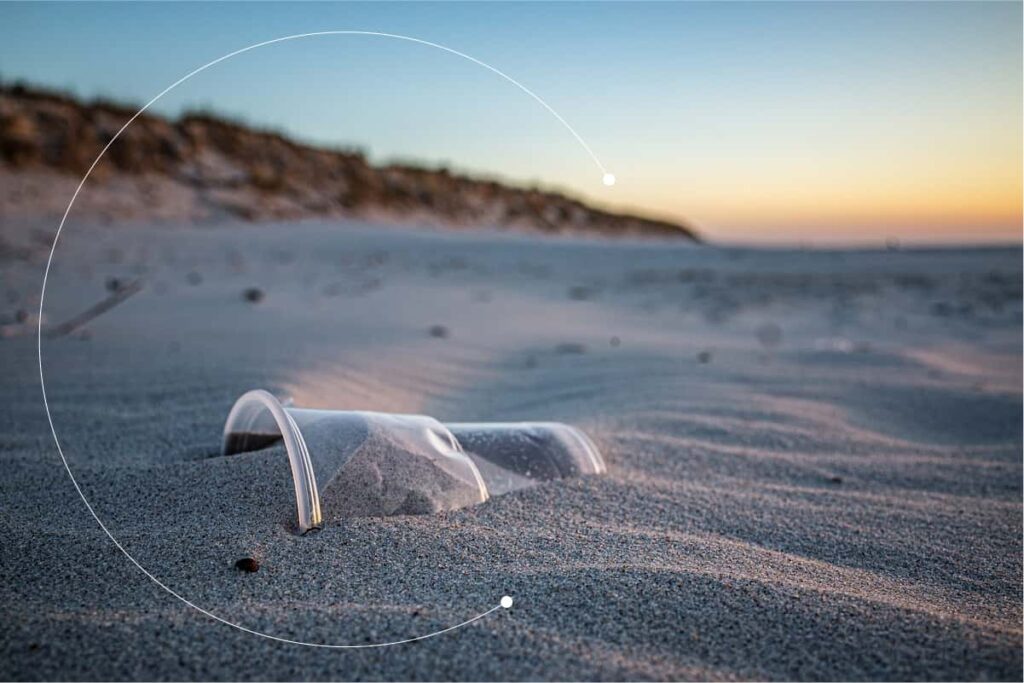Everyone deserves a living wage — that’s an undeniable truth. It’s a fundamental human right to live without the constant worry of making ends meet. While advocating for living wages is commendable, transforming those ideals into action is no easy task. Balancing fair pay with maintaining impact, profitability, and sustainability is a significant challenge.
Meet Maiya Holliday, the visionary founder and CEO of Mangrove Web Development. Maiya’s company specializes in website design and development, and its mission is to elevate the operations of purpose-driven businesses across the globe. What sets Mangrove apart is its unwavering commitment to ensuring its team receives fair compensation while upholding its core values of impact and sustainability.
Today, we are honored to have Maiya join us for the second episode of our Living Wage series. She’s here to share the journey she embarked on within Mangrove—a journey that aimed for more than just a living wage. Her goal wasn’t merely to pay a bit above the minimum; rather, she set out to achieve pay equity. Through her dedication and innovative approach, Maiya has enabled her employees not just to survive but to thrive and grow. As an employer, there’s much to learn from the path she and Mangrove have taken to provide more than a living wage.
Maiya’s Journey from Self-Taught Coding to Mangrove
Maiya’s journey began during her college years when she immersed herself in the world of International Development. After graduation, she found herself working for a nonprofit in San Francisco. Her role there was diverse, but it often centered around the management of their website.
Maiya’s journey took a significant turn during her volunteer trips to Thailand and Tanzania. These experiences lit a fire within her, planting the seeds for the creation and expansion of Mangrove. During her travels, Maiya couldn’t help but notice a critical issue: the nonprofit she had previously worked for operated with a business model that lacked sustainability and effectiveness. It was clear that a change was needed.
Maiya reflected on her experiences, realizing that the impact of volunteer work in these countries often fell short of its full potential. She recognized a gap that needed to be bridged. The local communities she interacted with frequently had to act as intermediaries between volunteers and their projects. Maiya thought, “Why not support these local individuals who were already deeply connected to their communities?”
It started small: Maiya set up a small donation page for a man in a village who was buying cement bag by bag to build a dam. She used her skills in website management to channel resources directly to the people who needed them and were already doing the work on the ground rather than relying on intermediary organizations depending on volunteers.
In Maiya’s words, “I think the volunteer program created a lot of inspired people who came out of the program and maybe did other great things. But it felt like it was a facade for real impact — I wanted to do something that was more direct.”
Creating Support Where It’s Needed
Maiya had a vision: to create infrastructure that supports the good work that people do. And that’s what Mangrove does. It doesn’t start doing work itself — instead, it amplifies existing organizations and people so that they can do their jobs better. The idea came from a mangrove forest, whose root system creates a place where countless organisms can live, thrive, and grow.
According to Maiya, Mangrove is designed to augment and amplify the great work of their clients. She expressed, “In many cases, our clients’ work itself is phenomenal, but there’s a gap in reaching the right audience. Often, we just need to help illuminate what the organization is already doing and communicate it more clearly and effectively to the world. That allows our clients to expand their reach and have a greater impact.”
She sees web design and development similarly: connecting the man in a village building a dam was the beginning. Her organization builds connections and creates partnerships so that other people can enact and realize their visions.
How Mangrove Enhances the B Corp Framework
Within the B Corp framework, a fundamental aspect is the commitment to providing all employees with a living wage. However, Maiya believes in going the extra mile. While offering a living wage is certainly a significant improvement over minimum wages, it can still fall surprisingly short. Maiya’s personal experience in California, where she resides, highlights this issue vividly. The living wage in her state isn’t sufficient to support herself and her two children.
This is where Maiya introduces the concept of pay equity. Traditionally, pay equity has been about ensuring equal pay for equal work. But at Mangrove, it’s taken a few steps further.
In Mangrove’s perspective, pay equity goes beyond just equal pay. It’s about fostering diversity and eliminating biases within the company by ensuring that employees performing similar roles are compensated fairly. Several other factors come into play as well. Employees should receive salaries that consider:
- Are paid in a way that shows the company values them
- Aren’t regularly financially stressed
- Are able to live with a certain level of ease
Defining Pay Equity
Maiya acknowledges that their idea of pay equity goes beyond the classic definition, but it helps ensure fairer compensation. In her words, “it’s a hard thing to quantify really specifically, but it’s just meant to capture a wider lived experience of what it means to be compensated fairly.” This is particularly critical for Mangrove: as an international company with 24 people across different countries, compensation becomes a slightly more challenging question.
Pay equity considers several factors: gender and race dynamics, for example. Within Mangrove, Maiya and her co-leaders created a system that considered their individual circumstances to support their employees and offset extra costs they might be incurring.
How Mangrove Created Pay Equity For Its Employees
What began as a system for the leadership team eventually became a system for the entire company. Given governmental, healthcare, and tax perspectives, it was a significant challenge, but they were ready to take on that challenge.
Here are the questions they asked:
- What are your employee’s needs? They first ensured everyone on their team had their voices heard through a poll about their situations. It revealed the levels of financial stress each employee experienced.
- What do the employees think about compensation? Mangrove then asked the team itself: should someone’s unique circumstances, such as skills, company longevity, geography or having dependents factor into compensation?
- What would count as a living wage for your employees? A high-value data point that Maiya’s team discovered was that the estimates for living wages tend to be lower than is accurate for their employees.
But they didn’t stop there — central to this process was transparency. All the data Mangrove gathered and all the insights that went into their decisions regarding compensation were open to their employees. And even as they made decisions about the factors going into the wages the team would receive, they kept their doors open for more feedback.
In summary, their process looked like this:
- Survey the team.
- Map out and analyze the team.
- Meet with leadership and make an executive decision about the data.
- Have an ongoing engagement with the team about where they stand regarding compensation.
They didn’t end up with an easily cut and dried system. Maiya describes the whole process as “Getting as much feedback and really making sure there was an open channel of feedback and then follow up communication was a big part of doing this.”
A Question of Fair Pay
One of the biggest concerns — that, according to Maiya, gave her a lot of sleepless nights — is the question of fair pay. Even with all this data and the ongoing process around fair compensation within Mangrove, what’s fair for one person might not be fair for another.
Their current setup doesn’t have standardized salaries, nor do the stipends have standard amounts. Their U.S.-based team members and team members in countries where Mangrove could set up an entity have full-time salaries, but they can’t do that for everyone on their team.
So many factors go into ensuring fair compensation and pay equity that the answer to the question of fair pay may never be answered to satisfaction. As Maiya puts it: “the short answer is, I don’t know. And the most fair thing that I know how to do at this point in time is to keep looking at the data and take it with a grain of salt, but make sure that’s part of our decision-making.”
Navigating the Path to a Sustainable Impact Business Without Compromising People
For a B Corp, the delicate balance between pay equity, impact, and sustainability can be quite a juggling act. The burning question is, how did Mangrove Web Development manage to achieve all it has? Let’s explore the steps they took:
- Forecasting the Future: Maiya takes a forward-looking approach to compensation. She uses a program that allows her to project their financial numbers, offering insights into the impact on Mangrove’s finances not only in the short term but also up to six months ahead and beyond.
- Prioritizing the Team: Once the financial projection is in place, Mangrove allocates bonuses and ensures fair compensation for team members.
- Reinvesting in the Company: After addressing the team’s needs, they assess what the company requires to maintain sustainable operations.
- Sharing Profits: Profit sharing with the leadership team comes as the final step. It also serves as a benchmark for evaluating the company’s performance over the year.
As employee wages increase at Mangrove, so does the pricing for their services. It’s essential to understand that a company can’t solely rely on its impact mission; making a difference necessitates having the financial means and resources to support it. Maiya encapsulates this concept by saying, “Whenever we raise our prices, it’s equally important for me to emphasize that part of the reason is to ensure our team is well taken care of and fully supported to deliver their best work.”
Learn More About the Episode Highlight Guests
Maiya Holliday is the founder and CEO of Mangrove Web Development. She’s a self-taught coder who grew from small projects here and there to a worldwide company that supports purpose-driven impact businesses.
You can learn more about Maiya and Mangrove Web Development through their website.
The best place to connect with Maiya is through LinkedIn.
Profit is a tool every business needs to succeed. No matter how noble your mission is, managing your finances is crucial to ensuring your company thrives and grows in the face of financial adversity. At The Profit Reimagined™, we do more than just provide generic virtual CFO services. We aim to understand your mission and vision so that we can devise financial strategies that suit your company’s goals. What kind of impact do you want to make? Who are you aiming to help?
If you want to grow your team to ensure that your company serves its purpose beyond profit, a CFO can help you figure out your next best move. Schedule a discovery call with Profit Reimagined™ to help you cover your foundations and deepen your understanding of these concepts.






